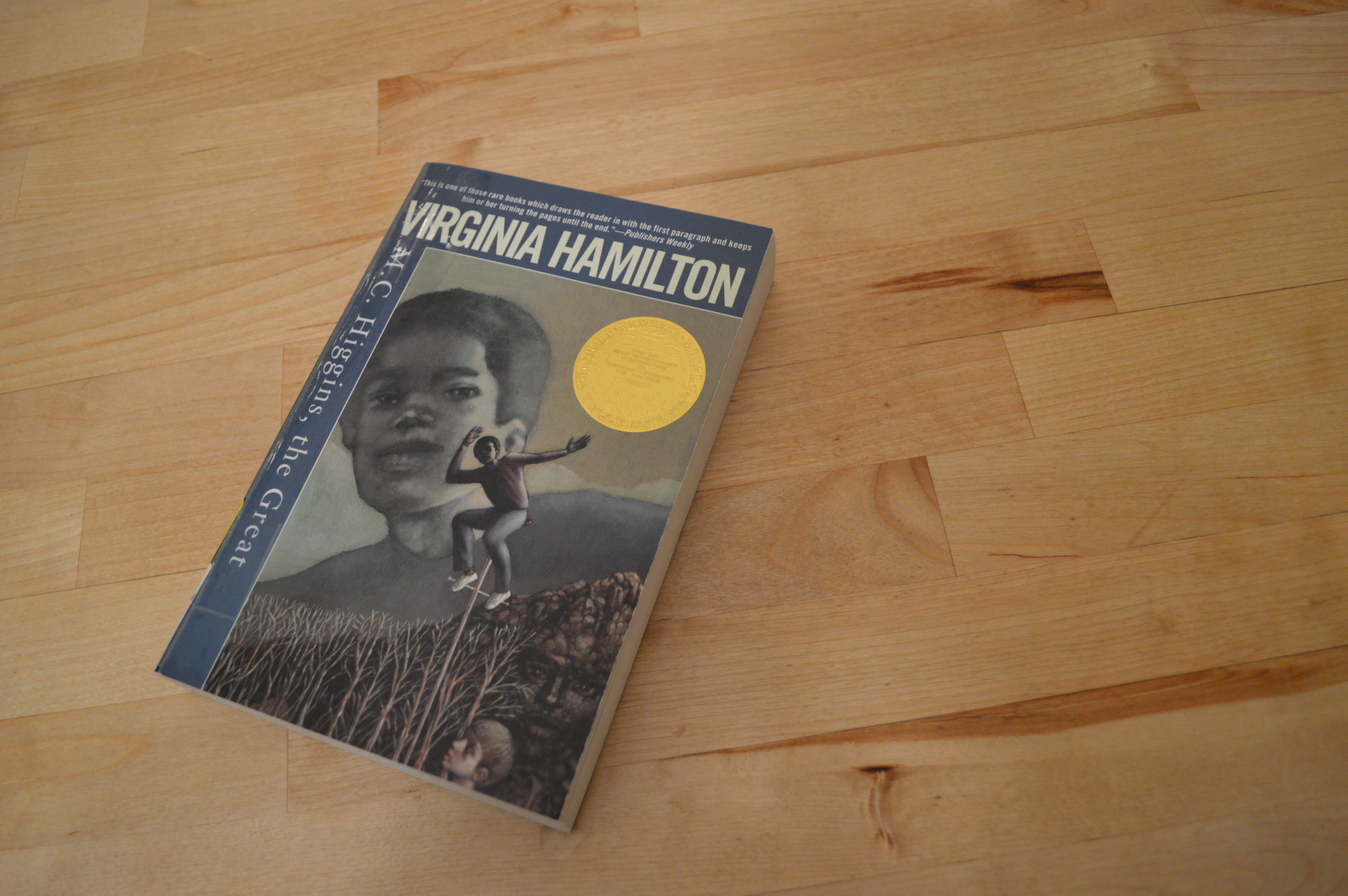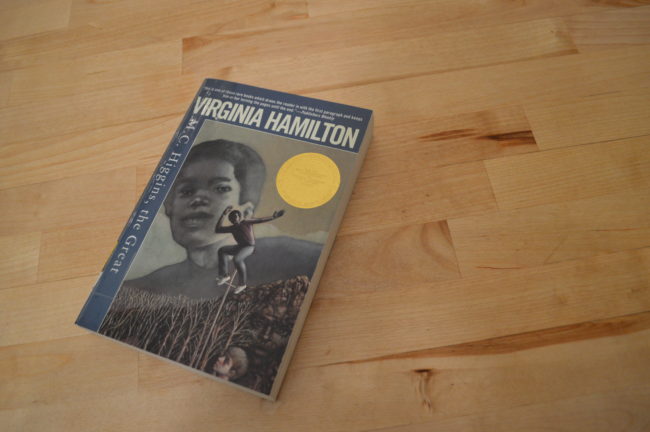
I feel pretty guilty about not liking this book: M.C. Higgins the Great by Virginia Hamilton, winner of the 1975 Newbery award. Its subject matter (Appalachian Poor Communities) and its author (one of the first women (or person!) of color to win the Newbery) are both things that I think the Newbery Award books needed long before they started to happen in the 1970s. But as much as I wanted to like it, MC Higgins the Great’s style was just not for me. It’s very poetic and dream-like, hopping between stream of conscious first-person narration with a heavy dose of teenage angst and a more standard 3rd person narration with little more than a paragraph break to indicate the switch.
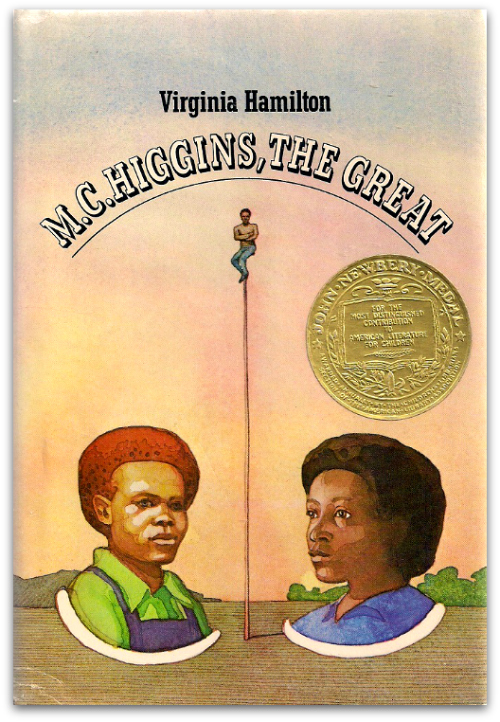
The thing that I liked the most was the setting— the trees and the mountain and the farming complex—and yet the geography of this world, while incredibly important to the story, was also hard to follow. Where was the mountain in relationship to the valley in relationship to the town in relationship to plateau? Even the central and most striking image of the book (a teenage boy sitting on a flag pole with bicycle wheels while swaying) was confusing: I couldn’t really even completely picture it—how far did it sway, how on earth did he not fall off?
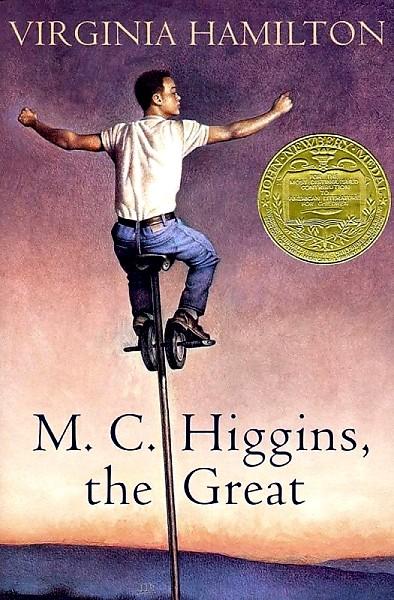
I took forever to read this book. I maxed out my library renewals twice and had to return it and check it out over and over. Every time I went back to it I tried to give myself a pep-talk: it couldn’t possibly be as difficult as I remembered. But within a paragraph MC was having a vision, or doing the opposite of what he had a paragraph before thought he would do, or he was dreaming.
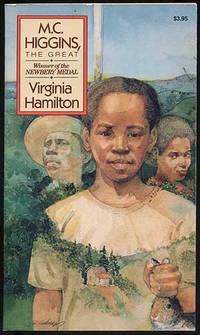
One of the things that I have come to realize in my reading life over the past five years is that I don’t like dream sequences. The parts of the previous Newberies like The Slave Dancer, Onion John, Tales from the Silver Lands, or Dark Frigate that I found I connected with the least were the dream-like portions. Maybe you don’t mind reading a good dream sequence (or listening to free jazz or reading a really abstract long poem), but I am a lady who likes to know if what’s going on is really going on, in a fairly concrete place and order. In some ways this book has a lot in common with Summer of the Swans — angst-y teen in Appalachia, finding his or her place within his or her family there, but Summer of the Swans had a stronger narrative drive and clear-cut voice.
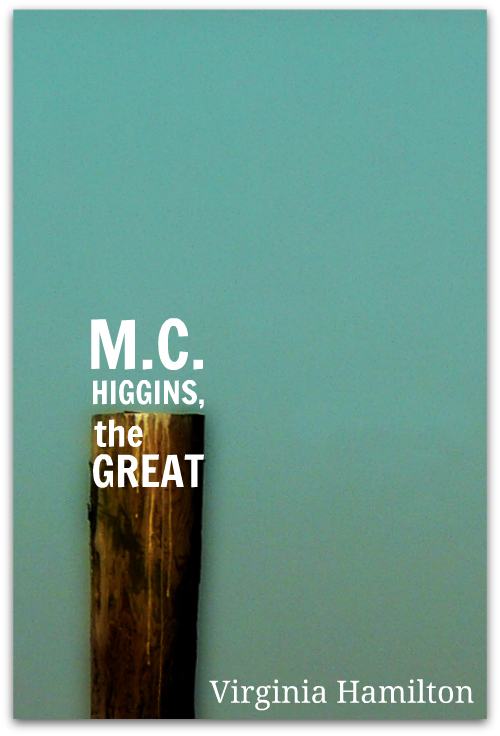
…And yet… this book won so many awards. And had so many different editions printed, just based on the evidence of new book covers alone. The blurb on the back of the book describes her as “easily the most distinguished literary voice writing for young readers today.” Which I will agree that she definitely is Literary with a capitol “L” and has a very distinctive voice.
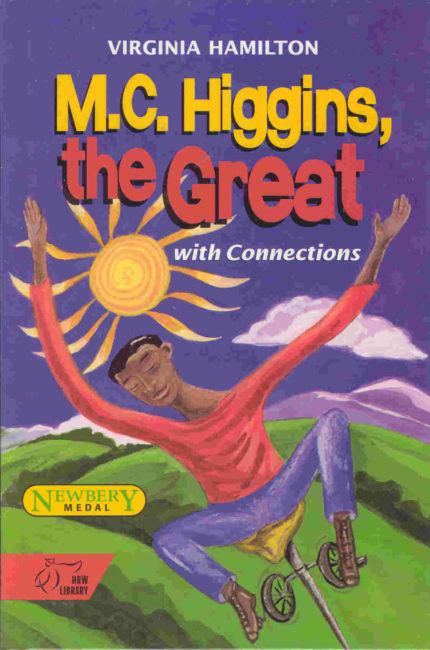
So I would conclude that probably, this book is a good fit for some readers, but not for me.
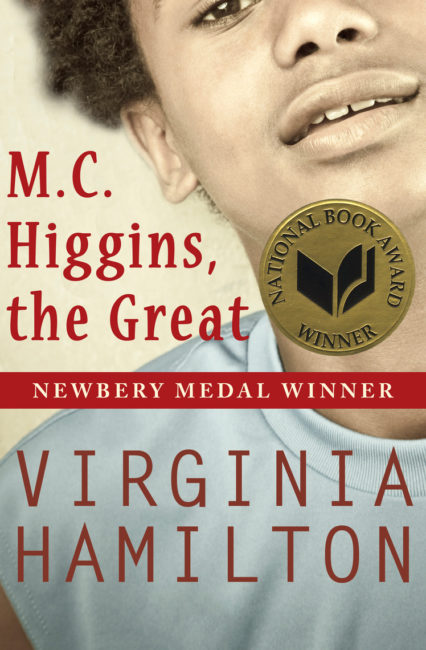
Because the end of the book was fairly satisfying, and there were sentences and bits of scenes that I liked, descriptions of the mother singing, or a tree, or the water that were truly beautiful.
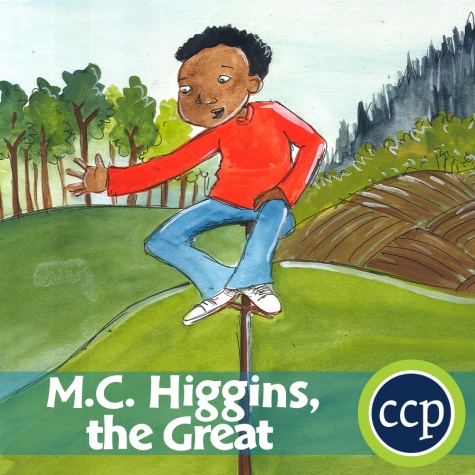
Perhaps part of Hamilton’s goal was to unsettle readers likeme, to disorient us, place us into a character who felt all mixed up about who he was and where he wanted to be and how he was going to get there. Perhaps readers who experience that in their regular life felt that someone was giving them a voice.
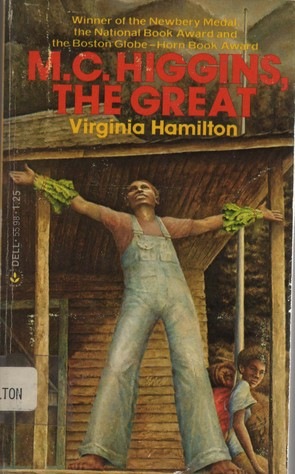
Have you read MC Higgins the Great? What are your favorite books that other people have good reasons not to like?
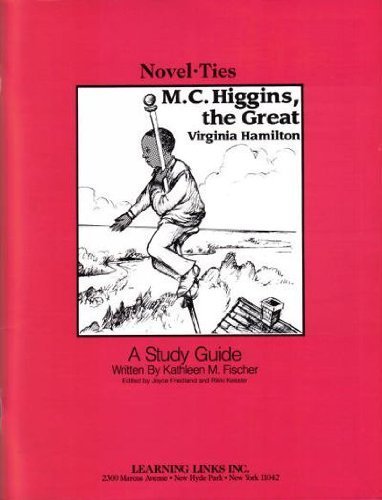
*Note* This post contains Amazon affiliate links, which means if you were to buy a book, I’d get a tiny commission at no cost to you. Thanks for supporting Stories & Thyme!*
